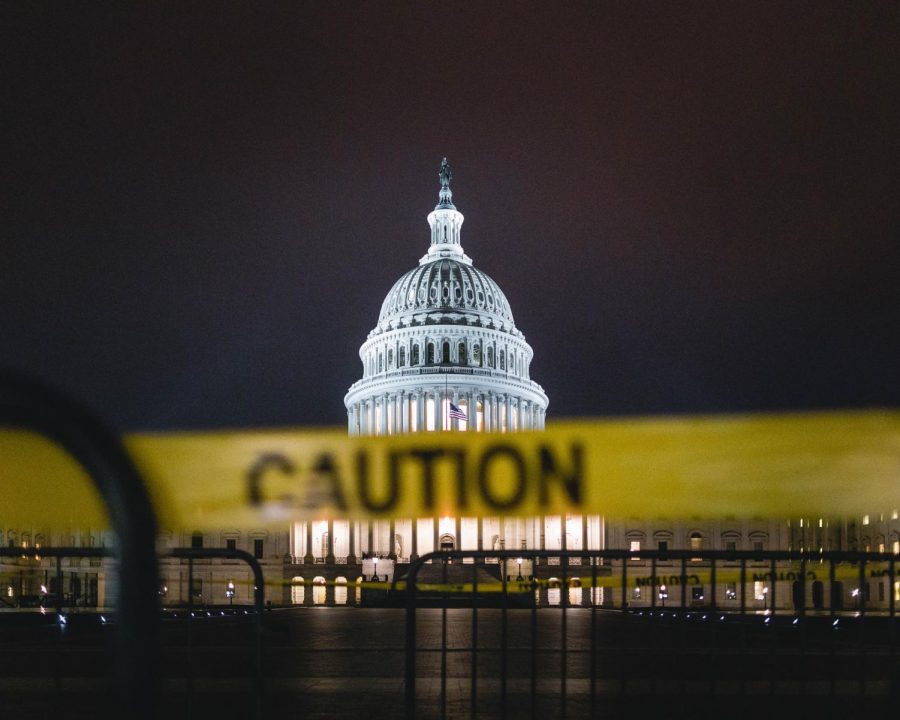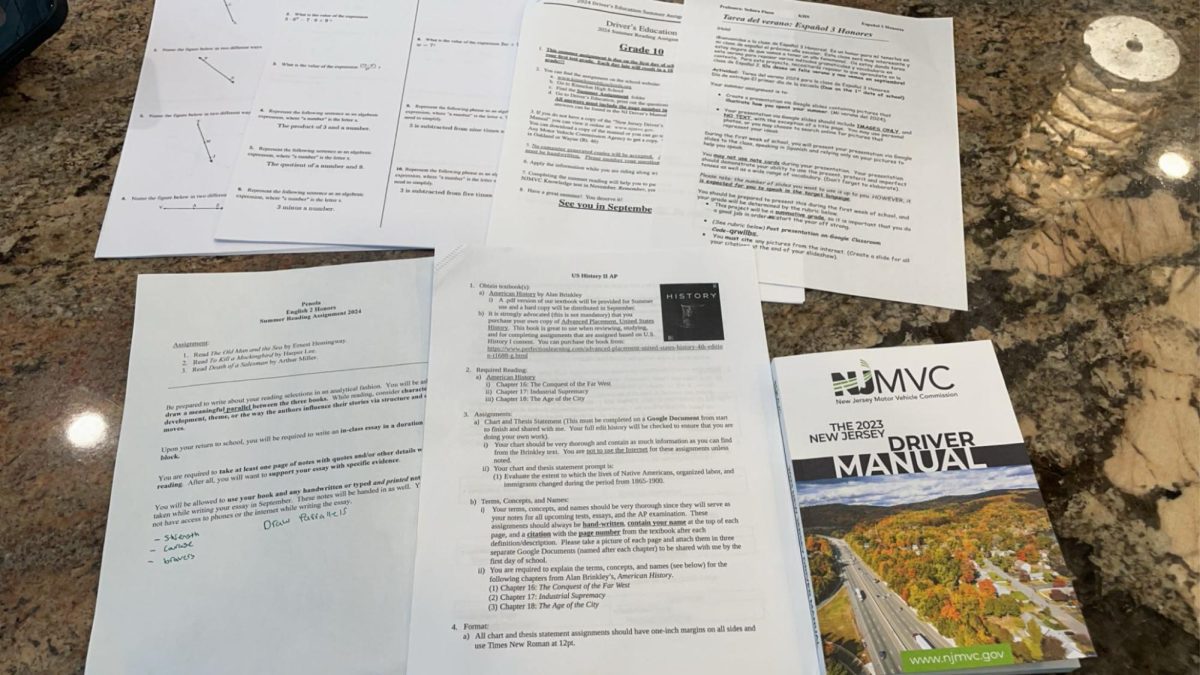Jan. 1: Senate Overrides Trump’s Veto
An override of Donald Trump’s veto of the annual military spending bill was passed overwhelmingly with an 81-13 vote in the Senate. This bipartisan act of the Senate marks the first of its kind in Trump’s presidency, signaling the overwhelming congressional popularity of the bill, despite the president’s demand for a measure overturning Section 230 and $2,000 stimulus checks to be written in.
Jan. 6: Capitol Riot, Democrats Win the Senate
After attending a rally for President Donald Trump between the White House and Washington Monument, pro-Trump mobs marched down Pennsylvania Ave., Constitution Ave., and the National Mall to the Capitol. During Trump’s speech, a crowd had already begun to amass behind barricades on the Capitol lawn, as documented by live streams posted to social media as well as news broadcasts. Among Trump supporters were the far-right group the Proud Boys.
In his speech, Trump announced, “We are going to walk down to the Capitol.” Supporters began to march in the direction of the Capitol before Trump’s speech ended. As more supporters began to arrive, small clashes between the police guarding the building and agitators began to happen. Over the next few hours, the debate began on the Senate floor as police and rioters clashed outside, while reports of a found pipe bomb were simultaneously announced at the DNC. Just after 2 p.m., rioters broke into the building as debate continued. Shortly thereafter, the Senate went into recess, closely followed by the House, as rioters continued to enter the building and violently clash with police. The violence endured for three hours until the building was declared secure, with five lives being claimed in the process. That evening, Representative Ilhan Omar announced she would be drawing Articles of Impeachment against Trump.
Representative-elects Jon Ossoff and Reverend Raphael Warnock won their respective races against David Perdue and Kelly Loeffler. Democratic success in Georgia means that the Senate will be split 50-50, giving Vice President Kamala Harris the tie-breaking vote.
Jan. 7: Biden’s Win is Confirmed
In the early morning, Congress certified President-elect Joe Biden’s win. The vote was delayed by several hours due to the mob that took on the Capitol, forcing congresspeople to shelter and the Vice President to be removed from the building. Some Republicans who had previously challenged the legitimacy of Biden’s win backed down from their stances following the riot, but other Republicans like Senator Ted Cruz continued to fight to overturn the election results. In the end, the Vice President, who presided over the counting, announced that Joe Biden was the president-elect following the counting of Vermont’s electoral votes which put the Biden-Harris ticket over the threshold of 270.
Jan. 12: House adopts resolution for Vice President Pence to invoke the 25th Amendment
The night before the House impeachment vote, a resolution was adopted calling on Vice President Pence to invoke the 25th Amendment. In a letter to Speaker of the House Nancy Pelosi, Pence rejected the resolution. Only one Republican, Adam Kinzinger, supported the resolution. Aside from Kinzinger, House Democrats supported the measure and House Republicans opposed it, with Republicans Greg Murphy and Daniel Webster abstaining.
Jan. 13: House Impeachment Vote
Two hundred thirty-two representatives voted to impeach Donald Trump on the basis of committing “high crimes and misdemeanors” following the incitement of the Capitol riot on Jan. 6. Almost all of the votes in support of impeachment came from Democrats, with 10 coming from Republicans such as Liz Cheney and Adam Kinzinger. One hundred ninety-seven Republicans voted no, and four abstained from the vote altogether.
Jan. 14: Biden announces Coronavirus Spending Package
In an effort to aid in economic recovery, President-elect Joe Biden announced a $1.9 trillion as an agenda item for his first days in office. Most notably, Biden is looking at $1,400 stimulus checks to be added on top of the $600 checks from the December relief package. Other items include potential financial incentives for schools to reopen, a minimum wage increase, a paid leave extension, an unemployment extension, and increased spending for local municipalities.









